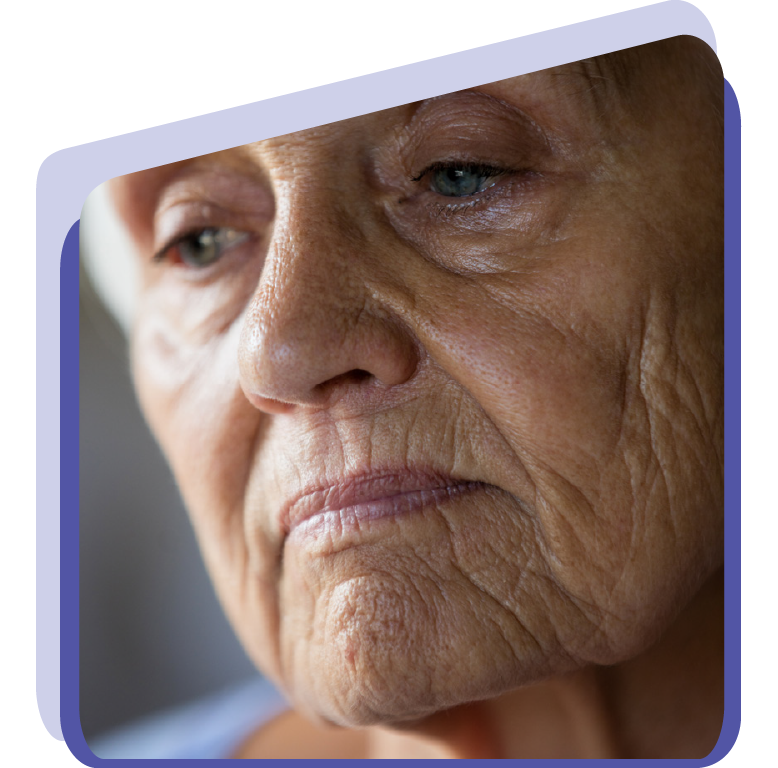Bob's Story

The PGT was the statutory property guardian of Bob who was labelled as having a developmental disability. Bob had a Representation Agreement under Section 7 for minor and major health care and personal care (RA7 H+P).
Bob’s representative helped him move out of facility care to live in a community setting with supports. His Representation Agreement team also talked with the PGT staff so he could have money to help pay for his wedding to Annie.
Read more...
Bob really wanted to discharge the PGT as his property guardian. Over a year, the monthly fees the PGT charged for its services added up to the amount of one month of Bob’s pension benefits. He knew with a Representation Agreement he could benefit from that money.
The PGT was willing to discharge their authority if Bob had a Representation Agreement Section 7 that included routine management of financial affairs. The PGT determined there was minimum risk and they had the experience of working with Bob’s Representation Agreement for health and personal care. (Note: Bob’s example occurred before the changes to the legislation, which now outline legal procedures for ending statutory property guardianship.) The PGT discharged their authority and Bob gets help from his representative, alternate and monitor to spend his money on the things he wants.
Don’t wait for a crisis! Simran’s situation alerted her spouse and her family and friends to make and register their own legal planning documents.
Carla's Story
Carla, who lives in Rossland BC, recently suffered a serious stroke which has affected her memory and her ability to speak. Before her stroke, Carla had discussed personal planning with her close friend, Susan, but did not get around to making any legal arrangements. Following Carla’s stroke, Susan can look after Carla’s cat and bring her mail to the hospital because she has a key to Carla’s home, but Susan does not have legal authority to check on Carla’s bank account and make sure the bills are paid. She also can’t help Carla apply for her health insurance benefits through work. Susan wants to help research rehabilitation programs for her friend but does not have legal authority to access information about Carla’s current medical condition and test results.
When a health care decision needs to be made, the doctor must go by the default list in the law to select a Temporary Substitute Decision Maker for health care. This turns out to be Carla’s brother, Daniel, who lives in another province. Before Carla had her stroke, she and Daniel had phone contact about two or three times a year. Daniel feels ‘on the spot’ – he wants to help his sister but he doesn’t feel prepared for the kind of decisions arising from her stroke. He can talk with Susan about his sister’s care but everything takes longer and is more complicated than if Carla had made arrangements ahead of time.


The social worker told Susan that he might have to refer Carla’s financial and legal affairs to the Public Trustee, a government official, who can take over as her ‘statutory property guardian’ unless Daniel applies to court for guardianship. Under adult guardianship, Carla would lose her civil rights and be considered a non-person under the law. Adult guardianship is difficult to reverse, even if Carla recovers her abilities.

Susan did some research and learned that in BC, a Representation Agreement Section 7 is a legal alternative to adult guardianship and can cover health and personal care matters as well as routine financial and legal affairs. Susan and David discuss how they can help Carla make an RA7 so she gets help without losing her rights. (Susan also finds out what arrangements she can make now, before a crisis happens.) No other province in Canada has a legal alternative to guardianship for adults.
Simran's Story

Simran first had a stroke that affected her speech and ability to move the right side of her body. With the support of her spouse and daughter she regained many of her abilities.
A short time after her stroke, Balwant and Kamal helped Simran to make a Representation Agreement Section 7 for all life areas (RA7 All)—routine finances, legal affairs, minor and major health care and personal care.
The RA7 All enabled Balwant to renew the car insurance which was in joint names with Simran. He was able to talk to Canada Revenue about Simran’s taxes. He and Kamran were able to consent and advocate for Simran’s health and personal care wishes. They were also able to apply for long term disability through Simran’s employment benefit program.
Read more...
After her rehabilitation, Simran needed support but she was able to take back many of her daily activities at home and in the community. She was not able to return to her job. A few years later, Balwant noticed Simran was having difficulties with her memory and reasoning. She was diagnosed with dementia.
The RA7 All allowed Balwant and Kamran to assist Simran with various matters and consent to facility placement on her behalf. However, the routine financial affairs covered by the RA7 does not include dealing with real estate. For this reason, Balwant decided to pursue Committeeship as he wanted to sell the house to ensure funds to pay for Simran’s care and so he could move closer to the facility where she lived.
Balwant can decide if he is only going to apply for committee of estate and use the RA7 for helping Simran with health and personal care matters. He could apply for committee of estate and committee of person at the same time. (Committeeship overrides a Representation Agreement. It can also override an Enduring Power of Attorney. This can happen in cases of family conflict or abuse.)
NOTE: Owning the house jointly with right of survivorship means that if Balwant or Simran dies, the other will take over full ownership of the house. As you have seen, joint ownership does not avoid the need to plan in case of incapability.
Don’t wait for a crisis! Simran’s situation alerted her spouse and her family and friends to make and register their own legal planning documents.
Nidus is a Latin term for nest: a symbol of safety, support and self-development.
Sign up for newsletter
Stay updated on the latest developments, resources, and more.
© 2024 Nidus Personal Planning Resource Centre. All rights reserved.

